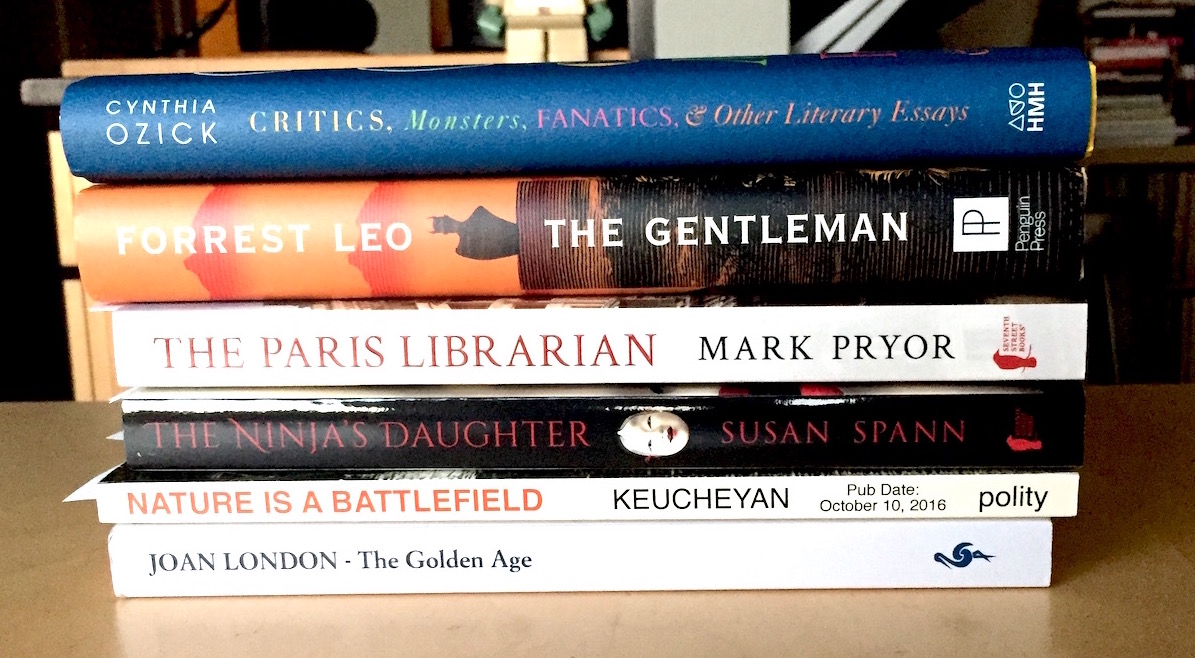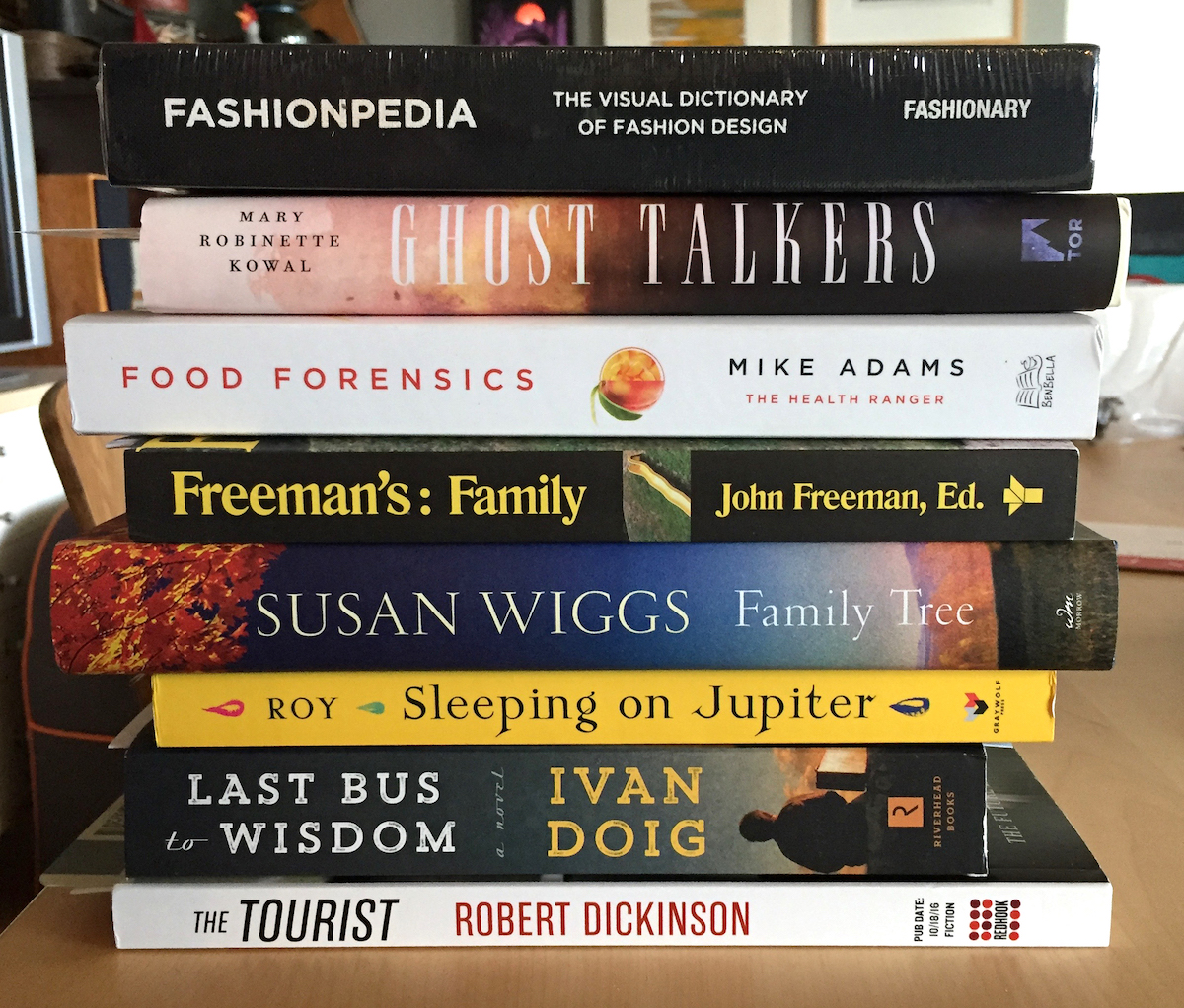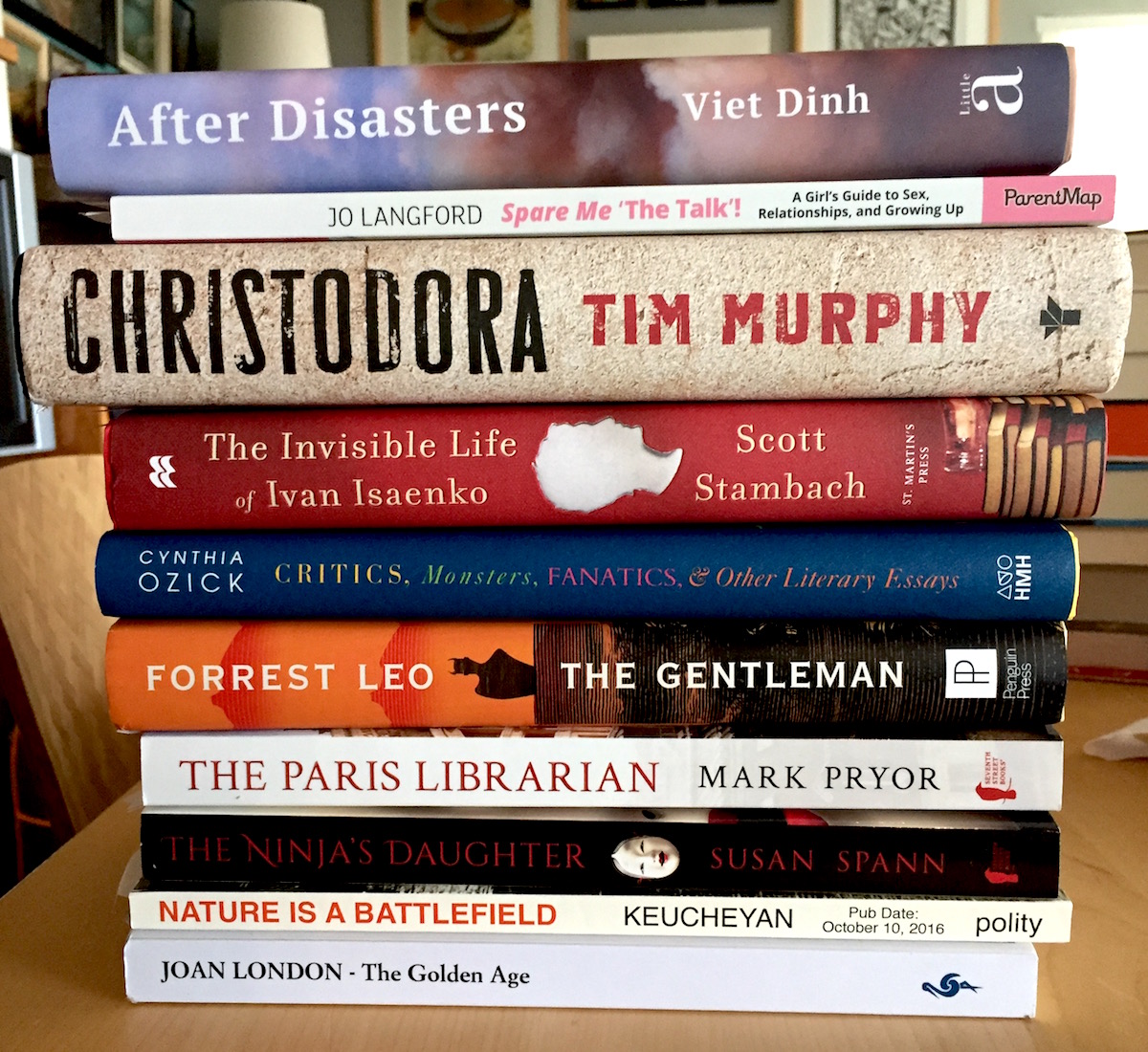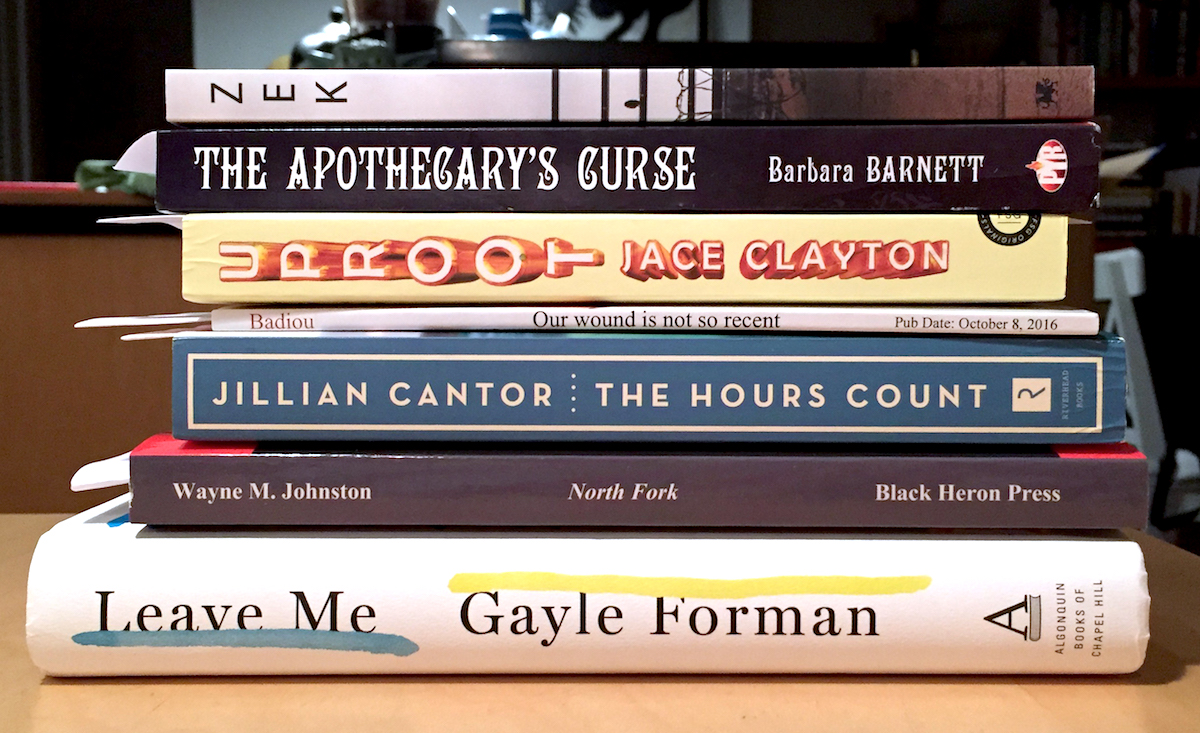The Sunday Post for August 7, 2016
A Terrifying Journey Through the World’s Most Dangerous Jungle
The Darién Gap, an expanse of wilderness between Colombia and Panama, has seen countless deaths and disappearances. Snakes and guerrillas fill the jungle, but despite these perils, thousands of migrants from all over the world attempt to cross it in hopes of eventually reaching the US. Jason Motlagh faced the risks and trials of the journey leading up to and through the Darién Gap to document the experience.
As traditional pathways to the U.S. become more difficult, Cubans, Somalis, Syrians, Bangladeshis, Nepalis, and many more have been heading to South American countries and traveling north, moving overland up the Central American isthmus. The worst part of this journey is through the Gap. The entire expanse, a roadless maze that travelers usually negotiate on foot and in boats, is dominated by narco traffickers and Cuba-backed guerrillas who’ve been waging war on the government of Colombia since 1964. Hundreds of migrants enter each year; many never emerge, killed or abandoned by coyotes (migrant smugglers) on ghost trails.
Our attempted trip is possible only because we’re traveling with the permission of the Revolutionary Armed Forces of Colombia (FARC), the Marxist rebels who control access to the most direct line through the Gap — an unmarked, 50-mile, south-to-north route that’s also used to move weapons and cocaine. Following months of negotiations, FARC commanders based in Havana have agreed to let us attempt the trek and visit a guerrilla camp, so long as we keep the main focus on migration, not politics. After five decades of fighting, at a cost of more than 220,000 lives on both sides, FARC and the Colombian government are in the final stages of a peace deal that would end Latin America’s longest-running insurgency. No more complications are needed.
Thank you, President Obama, for being a feminist
Lucia Graves notes that many find it difficult to take a magazine like Glamour seriously when it discusses politics or anything that isn’t fashion/makeup. Which is why it’s even more important that President Obama wrote a piece about feminism for it.
He delves into intersectionality in a way that only the country’s first black president could, channeling Michelle’s struggle as America’s first black Flotus to eschew the two stereotypes waiting to swallow her identity: that of “angry” black woman on one hand, and that of docile first lady on the other.
And he’s doing it not to be politically correct as Trumpian thinking would have you believe, but because it gets at something powerful, which is the universality of fighting sexism and constrictive gender identities. “Rigid notions of identity isn’t good for anybody – men, women, gay, straight, transgender, or otherwise,” he wrote. “These stereotypes limit our ability to simply be ourselves.”
From Clerk to Postmaster at One of the U.S.’s Oldest Post Offices
Since Benjamin Franklin became Postmaster General 200 years ago, the US Postal Service has seen incredible change. In a short interview with Cindy Mason, current Postmaster at Hinsdale Post Office, Bourree Lam unearths the joys of being a Postmaster and the optimism Mason has for the future of the Postal Service.
Email has certainly come into play with the Postal Service. People don't write letters the same way that they used to. However, that doesn't mean that we still don't fill a very important part. We will be changing ourselves, and can I tell you what we're going to look like in 10 years? Not exactly. But I see us continuing to be a delivery service: Because of all the rural areas, we are still going to be a very important part of the fabric of the country. I do believe that the Postal Service is going to change, but it’s still going to be a viable place to work in the future.
The art of the great political speech
Tara Sonenshine makes the case for passion, preparation, and positioning as the key to a good speech. She also reminds us that brevity often works well: think of the Gettysburg Address and Maya Angelou’s poem at Bill Clinton’s inauguration. (Donald Trump’s RNC speech was the longest since 1972. Just saying.) Sonenshine also discusses the element of storytelling in a speech. (Read what our own Paul Constant wrote about Trump’s broken narrative).
Speechwriting and speech-giving lie in the craft of storytelling. Every story has a beginning, a middle and an end. A great speech is a story and contains stories within the body of the speech, delivered with the art of a narrator — someone you might enjoy listening to read an audiobook. Will that be the case this summer? Will any speech be memorable?
"This is Fine" Plush Dog - Kickstarter Fund Project #31
Every week, the Seattle Review of Books backs a Kickstarter, and writes up why we picked that particular project. Read more about the project here. Suggest a project by writing to kickstarter at this domain, or by using our contact form.

What's the project this week?
"This is Fine" Plush Dog. We've put $20 in as a non-reward backer
Who is the Creator?
What do they have to say about the project?
Official plush merch based on the comic/meme that is becoming all too relatable these days. Take the edge off and hug a boy.
What caught your eye?
Okay so this isn't a book, let's get that straight right away. It's a comic that went memeish, and now gone plush. You've seen it before, it's this one:

It's been popular lately, what with the election and all. And although the most of the "this is fine" sentiment has been aimed the feelings of overwhelming frustration at the Repbulican nominee, the GOP made a tone-deaf use of image:
Which inspired The Nib to do something amazing:Well ¯_(ツ)_/¯ #DemsInPhilly #EnoughClinton pic.twitter.com/qVywJM90Eu
— GOP (@GOP) July 25, 2016
. @GOP We actually paid the artist who made this. Here's what he came up with. pic.twitter.com/4D4bmx9ccp
— The Nib (@thenib) July 26, 2016
And then comission an update. Now, you can buy your boy, the burning melting dog, in stuffie format. With a coffee cup that says "This is fine."
Why should I back it?
I'm no hipster throwing pennies into the well of irony, but even I have to admit this particualr meme talks to me. And buying this is a way to reward the artist for giving us the zeitgeist, so neatly packaged and perfectly delivered. Plus, you can get him with a cardboard room to sit in. This is fine, the huggable version.
How's the project doing?
They don't need your money, but support a comic artist anyway. Let's line his brilliant pockets.
Do they have a video?
Kickstarter Fund Stats
- Projects backed: 31
- Funds pledged: $620
- Funds collected: $540
- Unsuccessful pledges: 1
- Fund balance: $420
If you haven't read this Guardian story by Alison Flood about the situation in Turkey, please do so:
President Recep Tayyip Erdoğan’s government used a state of emergency law to close the 29 publishing houses last week, along with a swath of newspapers, television channels, magazines and news agencies. According to the Turkish Publishers Association, the decree means that all goods, assets, rights, documents and papers belonging to the publishers will be transferred free of charge to the Turkish treasury, with no appeal to be made, and the prospect of further publishers being shut down in the future.
It is the 21st century and governments are still shutting down publishers. This is an embarrassment for the international community, and a chilling reminder that Donald Trump's calls to curtail freedom of the press are not fanciful. Weak leaders will always attack the written word.
The Help Desk: Is poetry a scam?
Every Friday, Cienna Madrid offers solutions to life’s most vexing literary problems. Do you need a book recommendation to send your worst cousin on her birthday? Is it okay to read erotica on public transit? Cienna can help. Send your questions to advice@seattlereviewofbooks.com.
Dear Cienna,
My entire life, I’ve suspected poetry to be a scam. People only pretend to understand poetry because they don’t want to seem like idiots. I’m right, aren’t I?
Don, Maple Leaf
Dear Don,
Let me ask you this, Don: Who exactly would poetry be scamming? The billions of people who don't read it or the thousands of poets who could make more money robbing public fountains for pennies than they ever will off their words?
Poetry isn't a scam. It's just another shit-upon art form, like opera singing and rodeo queening. And like opera singing and rodeo queening, it has its place – the bathroom. A morning trip to the toilet is the perfect opportunity to ingest one poem well. It is quiet. You are trapped. Your attention has no place to wander but across the page.
Sure, some poems are willfully opaque. Some writers like being misunderstood because it makes them feel smarter (and smugly misunderstood). But most good poets are looking to connect with readers and while you might not catch on to every allusion, with practice you will get the gist and hopefully, the gist will resonate.
I have a stack of poetry books on the back of my toilet. Here are three of my favorites: The Colossus and Other Poems by Sylvia Plath, whom you may have heard of; Ceremony for the Choking Ghost by Karen Finneyfrock, who is a local poet, and whose collection is a remarkable tribute to her sister's death by heart failure; and Voyage of the Sable Venus by Robin Coste Lewis, who writes about the portrayal of black women in art and history.
I don't pretend to understand everything going on in these books but I think the ritual of trying makes me smarter.
Kisses,
Cienna
Portrait Gallery - Claudia Castro Luna
Each week, Christine Marie Larsen creates a portrait of a new author for us. Have any favorites you’d love to see immortalized? Let us know
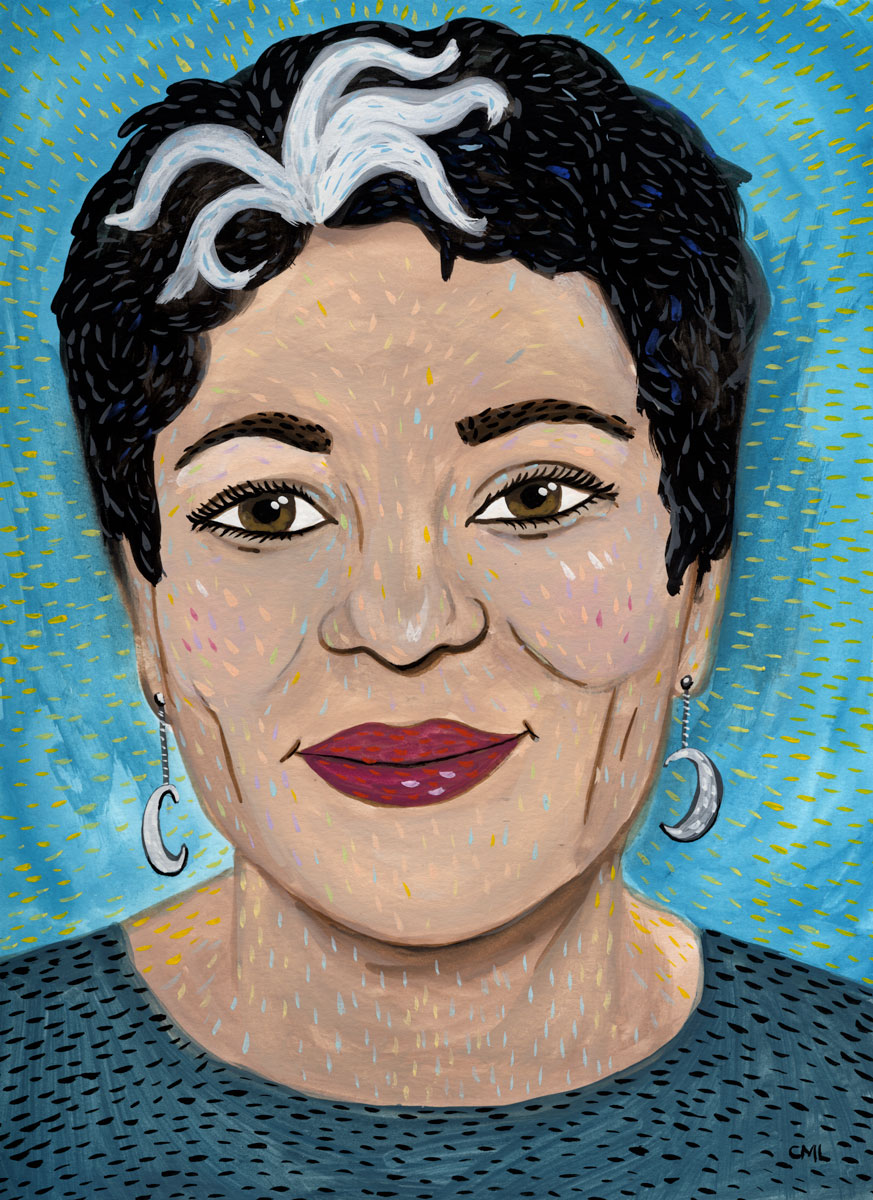
Originally from El Salvador, Claudia Castro Luna is Seattle's first Civic Poet, a new position that runs for two years. She was selected from among 21 applicants and holds an MA in urban planning, an MFA in poetry, and a teaching degree. She teaches and writes in Seattle, also dedicating herself to gardening and raising chickens with her family. She'll be reading this Saturday, August 6 at the Good Arts Building in Pioneer Square.
Things come together, things fall apart again
Published August 04, 2016, at 11:59am
Nigerian author Chigozie Obioma's novel builds on the foundation established by Chinua Achebe's seminal Things Fall Apart. Can it climb out from the shadow of Achebe's famous work?
Thursday Comics Hangover: Paper cinema
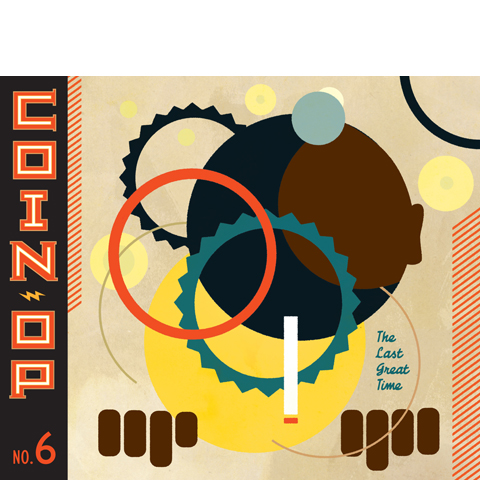
Last year, I wrote about Coin-Op, a wonderful comic series by the brother-sister team of Peter and Maria Hoey. The sixth issue of Coin-Op, titled “The Last Great Time,” was published earlier this summer, and it’s official: Coin-Op is the most wonderful new comic series you haven’t heard about yet.
When they’re not working on their comics, the Hoeys are animators and film buffs, and most of “The Last Great Time” is given over to an exploration of film history, in the form of brief comics essays about Luis Buñuel and Nicholas Ray, with guest appearances from Jimmy Stewart, James Dean, Lauren Bacall, Natalie Wood, Alfred Hitchcock, Jim Jarmusch, and many more. In “The People Vs. Nicholas Ray,” the center strip of every page is given over to a single black-and-white narration of Ray’s work (he’s the director of, among other films, Rebel Without a Cause) in his own words, while the top and bottom of the page feature “testimonials” by celebrities who worked with Ray, telling anecdotes about his life.
The Hoeys use the comics page in unique ways: the entire Coin-Op series is laid out horizontally, which allows the film-history essays to emulate some of the cinematic tricks that Ray uses: wide shots of the Hollywood Hills, interspersed with moody close-ups. It’s a kind of artistic payback: the strip quotes Ray as saying he would talk to film editors to learn his craft and “I’d bring along ‘Steve Canyon’ and ‘Terry and the Pirates’ comic strips as reference. I’d point to one of the strips and ask why can’t we do this the way they do in the comic strips?” Why, indeed.
One of the shorter stories in “The Last Great Time” is a strip featuring Saltz & Pepz, two recurring Coin-Op characters who resemble figures out of early animation. They’re stuck on a handcar, pumping their way down an endless stretch of train track that is, we’re told, “embedded on the surface of a video cassette tape.” They’re ghosts of film history trapped on an outdated form of viewing technology, but they’re still doing their schtick, getting a rise out of each other and pumping away on the handcar in the hopes that something will happen. It’s something like film purgatory, and the way the Hoeys depict the endlessness of their situation is impeccable: the rhythm of two figures pumping up and down on the rails gives the comic a tick-tock precision, a sense that it could go on that way forever.
Even though the first story in the volume, the second part of an ongoing narrative titled “The Inter-Office Memo,” doesn’t have an overtly cinematic angle, it’s still interested in the same questions as film. A man walks down a hallway of cubicles as office workers talk on the phone to unnamed figures. The hallway fills with water and becomes a river, and still the people on the phones keep talking. Every word balloon refers to a number: “At this point, I’m authorized to rebate up to four percent off the sticker price…yes, four percent.” And: “We currently have eleven outlets in your area.” And: “We’re going to need you to resubmit the form. Yes, all nine pages.”
The dreamlike panorama of “Inter-Office” expands further and further until the unconventional panel layout reveals itself: Every page consists of round central panels broken up into a kind of stained-glass tableau that, by the end, reveals itself to be a human eye. The page is looking at you looking at it, and reflected in the iris is a film projector, pointed right at us. Are we watching a movie? Is it watching us? Is there any difference between a flat screen with a movie projected on it and a flat surface with a story printed on it? Doesn’t the difference between comics and film really just come down, in the end, to a question of time?
Next week, and starting August 22, we have slots open for sponsorships, the first openings until October. If you are considering trying our program, both of these are discounted and might be good options. First come first serve — sign up on our Sponsorship page.
As I said yesterday, I am loving the newfound attention Colson Whitehead is receiving. If you're unfamiliar with Whitehead's work, this interview with Jennifer Schuessler of the New York Times is a great way to learn about him.
He mentioned a bookstore owner from the South who invited him to come down for “a frank talk about race.”
“I’m honored by the response to the novel, but I was like, ‘Can we just talk about the book?’” he said. “I’m not a representative of blackness, and I’m not a healer.”
Hugo House is bringing Whitehead to the Seattle Public Library on Saturday, September 17th at 7 pm. Start getting excited now.
Your Week in Readings: The best literary events from August 3rd - August 9th
Wednesday August 3: Aaron Burch, Uzodinma Okehi, and Ross McMeekin
Burch, a founding member of the literary magazine Hobart, debuts his new book about the Stephen King story “The Body,” which is most famous as the source for the movie Stand By Me. He’s joined by Okehi, author of Over the Rockwell, and McMeekin, who publishes the awesome Seattle lit mag Spartan. Naked City Brewing, 8564 Greenwood Ave N., 838-6299, https://drink.nakedcity.beer/events. Free. 21+. 7 p.m.
Thursday August 4: Bibliophilia: Chapter One
See our Event of the Week column for more details. The Pocket Theater, 8312 Greenwood Ave N., http://wordlitzine.com. $10advance/$14 door. All ages. 8 p.m.Friday August 5: Gender Odyssey
All weekend long, the Gender Odyssey conference will be celebrating advances in transgender and gender-nonconforming rights over the past year and planning for the year ahead, which includes a very contentious election. Tonight is the conference’s book fair, featuring authors including model, trans rights advocate, and TV host Geena Rocero. Washington State Convention Center, 800 Convention Place, http://genderodyssey.com. $105. All ages. 9 a.m.Saturday August 6: La Cocina
Seattle’s very first Civic Poet, Claudia Castro Luna, reads poetry with music from percussionist Antonio Gómez and his band, Trio Guadalevín as part of a monthlong pop-up venue called La Cocina, sponsored by Puget Sound nonprofit La Sala.. Castro’s poetry is vivid and big-hearted, and the Trio plays gorgeous, somewhat plaintive folk music. The Good Arts Building, 702 1st Ave., 322-7030, http://lasalaseattle.org. Free. All ages. 7 p.m.Sunday August 7: Reading with Rover
The best way to encourage kids into a lifelong reading habit: Read to them often. And when the time comes, let the kids read to you. Reading with Rover lets kids try out their new reading skill by reading aloud to professional therapy dogs. Could this be more adorable? No. No it could not. University Book Store Mill Creek, 15311 Main St., 425-385-3530. http://readingwithrover.org. Free. All ages. 11:30 a.m.Monday August 8: Ask the Oracle
The Hugo House’s supernatural-tinged reading series brings three local writers together in the swankest reading room in town to divine advice from their own books. Today’s authors include hilarious memoirist Nicole Hardy and two poets: the brilliant Arlene Kim and the dazzling Michelle Peñaloza. Sorrento Hotel, 900 Madison St., 622-6400, hotelsorrento.com. Free. 21 and over. 7 p.m.Tuesday August 9: Summer 2016 Poetry in Translation Reading
Seattle poet Greg Bem — one of the founders of the late, lamented Breadline series— returns to Vermillion with an event that investigates poetry (the translation of thoughts into words) and translation (the translation of words into other words). Readers include Kimberly Lyons, Vyt Bakaitis, and the Seattle poets Deborah Woodard, Faiza Sultan, and Samar Abulhassan. Vermillion Art Gallery and Bar, 1508 11th Ave., 709-9797, vermillionseattle.com. Free. 21+. 7:30 p.m.Literary Event of the Week: Bibliophila Storytelling Festival at The Pocket Theater
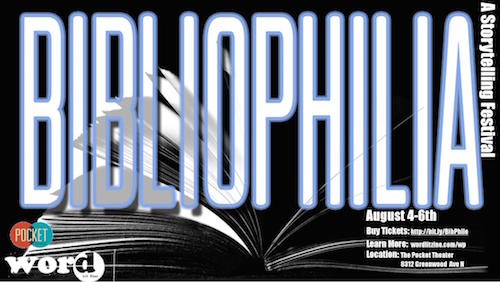
Bibliophilia is made up of five events taking place on August 4th, 5th, and 6th at the Pocket Theater in Greenwood. The idea is to bring a sense of drama and performance to literature. “I’ve been to a lot of readings,” Phillips explains, “and there are folks who are wonderful writers but not great readers. It’s not that the author doesn’t have talent, but they’re not a reader by nature.” With her improv and circus training, Phillips decided she was uniquely qualified to bring “the page to the stage” in new and interesting ways.
The festival opens and closes with a unique event format, titled “Chapter One.” An author reads the first chapter of their book, and then an improv troupe reenacts the story from memory. Aside from the usual thrill of watching someone work up a performance from scratch, the audience will be keyed in to catch the differences between the text and the impromptu mini-play. Thursday night’s Chapter One reader is Raven Oak, who’ll be reading from her sci-fi novella Class-M, about a space tourist who bumbles into a military thriller. Saturday night brings G. G. Silverman, author of Vegan Teenage Zombie Huntress. The format of the performance is a clever conceit that plays with our natural human impulse to nitpick the differences between a book and its adaptation. “I think there’s a lot of joy in that,” Phillips says, and there’s plenty of opportunity for surprise if the actors go “off-book.”
Friday night’s programming opens with “That Moment,” featuring an array of Word Lit Zine authors, who will read poems. Improv performers will then speculate on and enact their idea of the moment of inspiration for the poem. The actors might imagine that a sad poem springs from the night a poet realized they were getting divorced, for example, and incorporate pieces of the poem into the couple’s argument. Phillips calls it “an examination of how art imitates life, which imitates art.” The second Friday night show is titled “Through (rose) Colored Glasses,” in which women of color explore their heritage and lineage through poetry. This is the event that features the highest-profile Seattle-area readers, including Sasha LaPointe, Yolanda Suarez, Laura Da’, and Natasha Marin, who reads as Tashi Ko.
And in case you need a little bit of sexy to drag you out to a literary festival, Saturday night’s program opens with Naked Girls Reading which is, well, exactly what it sounds like: naked women—in this case, Jesse Belle-Jones and Sailor St. Claire—sitting onstage, reading stories to the audience. Phillips hopes with this festival to bring improv audiences out to their first literary event, and vice versa. She calls Bibliophilia “a festival for a lot of different people. Whether you’re a storytelling artist a poet, or a performer, you’re going to find this exciting because it’s a new kind of performance.”
Bibliophilia events are $10 advance/$14 at the door. Buy tickets and learn more at http://wordlitzine.com.
Book News Roundup: Lindy West takes on Jonathan Franzen
ZAPP, the Zine Archive and Publishing Project that was formerly based out of Hugo House but which is now looking for a permanent home for its library, is looking for submissions for its next issue of Xenographic, its quarterly publication. The theme is "IRL/URL," and they accept prose, poetry, fiction, non-fiction, illustrations, and photographs. Send your submissions to info@zappseattle.org by August 9th.
Bitch Media, the organization that publishes the indispensible Bitch magazine, is now accepting applications for fellowships which encourage writers to explore themes of reproductive rights & justice, pop-culture criticism, technology, and global feminism.
This fellowship was created in order to cultivate and amplify new voices. If you are a writer who has minimal publication experience, we strongly encourage you to apply. If you are passionate about one of the above subject areas but do not have a history of writing or blogging about them, we strongly encourage you to apply. If you are a writer still figuring out what subjects obsess you, we strongly encourage you to apply.
If you're sick of reading things written by humans, good news! There's now a literary magazine that will publish works written by artificial intelligence.
Lindy West tackled that problematic Jonathan Franzen interview from yesterday:
It’s a strikingly honest inversion of the cliche that white people usually reach for when asked pointed questions about race – “Some of my best friends are black!” – yet somehow more unsettling in its complacency. I don’t know these people, Franzen is telling us. These are not my people. I know enough to be embarrassed but I do not care enough to change.
Passive Voice
I use a trick to teach students
how to avoid passive voice.Circle the verbs.
Imagine inserting “by zombies”
after each one.Have the words been claimed
by the flesh-hungry undead?
If so, passive voice.I wonder if these
sixth graders will recollect,
on summer vacation,
as they stretch their legs
on the way home
from Yellowstone or Yosemite
and the byway’s historical marker
beckons them to the
site of an Indian village —Where trouble was brewing.
Where, after further hostilities, the army was directed to enter.
Where the village was razed after the skirmish occurred.
Where most were women and children.Riveted bramble of passive verbs
etched in wood —
stripped hands
breaking up from the dry ground
to pinch the meat
of their young red tongues.
Just last week, we told you that booksellers around Seattle were buzzing about Colson Whitehead's upcoming novel Underground Railroad. We quoted Vlad from Third Place Books, who praised "Whitehead’s unflinching exploration of the various manifestations of the economics of slavery."
Today, Oprah added her approval to the chorus of booksellers and librarians by adding the novel to her Oprah's Book Club label. "The September issue of O, The Oprah Magazine (available Aug. 9) will feature the former talk-show queen's interview with Whitehead," USA Today reports.
This is great news for Colson Whitehead — a fabulous novelist who has never quite garnered the appreciation that he deserves, in part because he's such a fearless experimenter. No one of his books is like any other of his books: his debut novel The Intuitionist is a sci-fi thriller; John Henry Days is a big novel of ideas about the distinctly American myth of John Henry; Apex Hides the Hurt is a short, satirical novel in the style of Heller; Zone One is a zombie novel; Sag Harbor is a quiet, semiautobiographical story. Hopefully the Oprah acclaim will propel some of those other books to the top of reading piles and bestseller lists. Whitehead is the real deal — a novelist with an incredible body of work who puts art before personality — and he deserves every ounce of attention he's getting today.
A how-to in making sure your child becomes an addict
Discovering new writers can be really hard. It's the reason we started our sponsorship program, and J.A. Wright is exactly the kind of writer we built it for. She's bringing her superbly wrought debut novel How To Grow an Addict to our site this week.
On our sponsor's page we have the prologue and first chapter, so you can read enough to discover that this is indeed a book you want to invest in. Follow the story of Randall, consigned to rehab and sure that she's the only one there with good reasons for her boozing and drugging. But Wright does something extraordinary in the canon of addiction literature: she uncovers the why; she tells the story of the steps it took to build an addict.
It's thanks to sponsors like J.A. Wright, and readers like you, that we're able to keep the pixels lit up here at the Seattle Review of Books. We've just released our next block of sponsorship opportunities. Check them out on the sponsorship page, and grab your date before they're gone.
Slate's Isaac Chotiner asks Jonathan Franzen if he's ever considered writing a book about race:
I have thought about it, but—this is an embarrassing confession—I don’t have very many black friends. I have never been in love with a black woman. I feel like if I had, I might dare.
Is there a word for when self-parody becomes the self? Is Jonathan Franzen the Donald Trump of the literary world?
UPDATE 1 pm: This tweet seems relevant:
That time Franzen was "frankly irritated" by @colsonwhitehead's choice of Lila Mae as narrator (via @thatlauraruby) pic.twitter.com/BGZKYIzhXq
— Maud Newton (@maudnewton) August 1, 2016
The idiot
Published August 01, 2016, at 12:00pm
The opening line of Jean Edward Smith's biography of George W. Bush: "Rarely in the history of the United States has the nation been so ill-served as during the presidency of George W. Bush.” Is this the anti-Bush bio we've all been waiting for?
August's Bookstore of the Month is Secret Garden Books
Founded in Green Lake by children’s book author Nancy White Carlstrom in 1977 — she’s best-known for the Jesse Bear series — Secret Garden Books moved to 15th Ave NW in Ballard before eventually settling in to its current location on Market Street. Secret Garden has always been known first and foremost as a children’s bookstore, but when New York bookseller Susan Scott moved to town after over a decade at fabled NYC store Books & Co, she took over the buying and brought in what staffers delightfully refer to as “grownup books.” In the last few years, the clientele at Secret Garden has changed with Ballard’s demographics; now the store sells more “grownup books” than kids’ books. The store’s art section has grown with the adultification of its customer base, too, and staff has gradually learned about visual art and literary fiction as customers have led them in that direction.
Secret Garden currently employs 13 booksellers. Events manager Suzanne Perry explains that for as long as she’s been on staff, the store has always employed exactly one male bookseller. “We’ve always, always, always had one boy,” she says. “It’s not purposeful. I’ve been here ten years and I think we’re on boy four. And they’re interesting boys, too. But the rest are just women, wall-to-wall.” (I chat with The Boy on Staff after talking with Perry, and he admits that he sometimes feels nervous when management interviews another male for an open position.) Secret Garden’s booksellers tend to stay on staff for a good long while. Perry says there’s really only one qualification they look for when hiring: they want people who “you can’t get them to shut up about books. In fact, you have to pay them to be quiet about books.”
The store regularly hosts readings and activities for kids. But many people outside Ballard don’t know that Secret Garden also hosts two very successful book clubs — one for kids and one for adults. “Book clubs are just my favorite thing in the whole world,” Perry says. She heads up the adult chapter, which meets on the third Thursday of every month. “Our book club is awesome,” she says, because it follows one simple rule. “We strictly talk about the book — the literary merits of the book. No personal talk, no comparing it to your own life, none of that bullshit.”
Secret Garden is known for the brick floor of its kid’s section right at the front of the store. The bricks are tightly packed but not mortared together, creating a clickety-clack cobblestone sound whenever anyone walks on them. The bricks and their ambiance have been part of the Secret Garden experience from the very beginning, and authors now sign individual bricks when they read at the store. Perry recalls a time when Twilight author Stephenie Meyer was in the store: “She walked on the bricks and they did not make a sound.” “I poked her in the ribs,” she says, and asked Meyer how she managed to stay silent. “She giggled” in response and then her footsteps started clickety-clacking like everyone else. Perry’s not saying Meyer is supernatural or anything, but she does note that her “skin was a little glittery.”
(UPDATE 4:14 PM: This post has been updated because like an idiot, I got the identity of the author wrong in the last paragraph. It was not Elizabeth Eulberg; it was Stephenie Meyer. Obviously, the story makes a lot more sense this way.)
Children's bookseller Mockingbird Books just announced that after eight years of selling books to the Green Lake neighborhood, they'll be closing at the end of this month. They cited a very simple reason: "the gross sales for at least this retail store no longer cover the overhead to allow continued operation." They continue:
Our last day of operations will be Saturday, August 27 and we have a celebration planned, so please join us. Please use any outstnding gift certificates or frequent buyer discounts by August 27. All sales from now until store closing will be final and any special orders should be prepaid.
